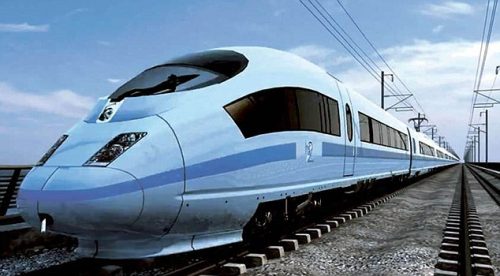Connectivity means productivity, argues HS2

Improved connectivity will drive productivity growth across much of the UK and help close the gap between the best and worst performing regions, according to a new study published by HS2 Ltd today (Thursday, November 30).
Drawing on evidence from more than 100 employers, local authorities and universities, HS2: Getting the best out of Britain, highlights the regional strengths of highly skilled manufacturing clusters, universities and research centres, and cutting edge technology entrepreneurs, but warns that more needs to be done to draw them together and realise their full potential in the modern economy.
David Higgins, chairman of High Speed Two (HS2) Ltd, said: “This report is the evidence that HS2 will boost productivity in the North and Midlands. This is a once in a generation opportunity to join up and amplify the many centres of excellence around the country, as we prepare to exit the European Union.
“By improving the connectivity between our major population centres, HS2 will give businesses access to the skills, labour and services they need to change the economic geography of the country.”
The report shows that world-leading skills and research in the North and Midlands can match that of London and the South-East.
Cities and regions in the North and Midlands account for 32% of the UK’s research staff working in universities with high quality research, compared to 35% in London and the South-East, and high quality universities produce thousands of graduates every year.
Despite this, employers in the North are still held back by a lack of access to skills, with 30% of businesses in Manchester citing lack of skills as a barrier to growth.
At the same time London continues to attract graduates from around the country with nearly half of its population at NVQ4 qualification level or above, compared to a UK average of 37%.
The report, to be launched at an event in Nottingham today, demonstrates that by joining up the major conurbations around the country, HS2 will enable a greater pooling of people and capital around the regions of the UK.
This connectivity will enable businesses in the North and Midlands to gain better access to new markets, investments, and become more globally attractive.
Chris Grayling MP, Secretary of State for Transport, said: “This study clearly shows transport investment is crucial to a strong and resilient economy. That’s why we are investing in all forms of transport including the biggest rail modernisation programme for over a century to improve services for passengers, providing faster and better trains with more seats.
“As Britain’s new railway, HS2 will deliver vital links between some of our country’s biggest cities, driving economic growth and productivity and helping to deliver the government’s Industrial Strategy.
“By bringing our major cities, regions and communities closer together we are encouraging business and innovation and building a Britain that is fit for the future with a stronger economy and fairer society.”
In addition, the study finds that by bringing major cities closer together, HS2 would further support the distribution of the business and professional services market around the whole country, which makes up over 10% of the UK economy.
With office costs up to 80% cheaper in the North compared to London, and salaries up to 40% lower, huge efficiency savings can be made. It is estimated that relocating a 50 person skilled legal back office from the City of London to Liverpool could achieve annual savings of £1m.
Comparing London’s highly-efficient transport network with the connectivity that exists within and between city regions in the North and Midlands, the study argues that there is a direct link between productivity and connectivity.








